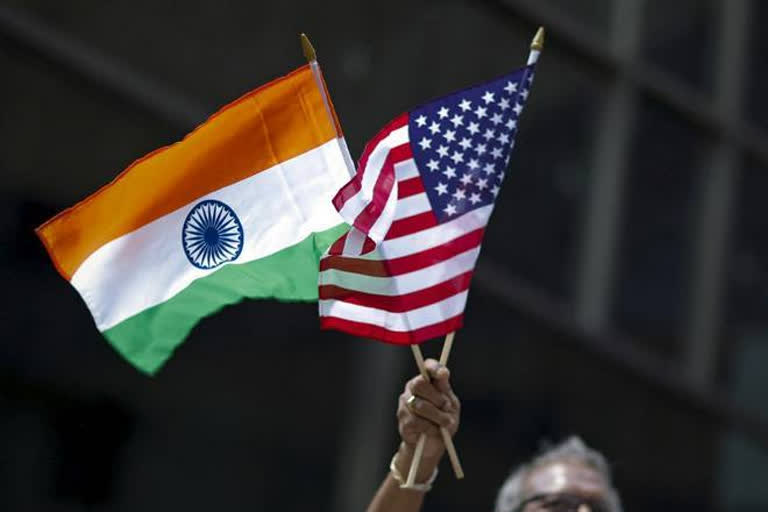New Delhi: The death of incarcerated 84-year-old Jesuit priest Stan Swamy in a private hospital in Mumbai could not have come at a worse time for India-US ties. Stan Swamy, whose real name was Stanislaus Lourduswamy, was a priest of the Jesuit order who was well-known for his fight on behalf of the tribal populace across central India and mostly in Jharkhand where he worked for tribal rights.
Accused of being a Maoist activist and jailed in October 2020 at Mumbai’s Taloja Central Jail under the Unlawful Activities (Prevention) Act (UAPA) in the Elgaar Parishad case, Stan Swamy was ailing with Parkinson’s and a slew of other physical conditions besides a Covid affliction. His last few weeks were spent to secure bail till he went into a ventilator on Sunday, never to recover.
Read:| Stan Swamy dead: Hospital tells Bombay High Court
The Elgaar Parishad case relates to violence following a gathering by Dalits on January 1, 2018, in Koregaon-Bhima near Pune that left one person dead. Significantly, on March 10, 2021, US Secretary of State Antony Blinken had sought more information on Stan Swamy’s case while responding to a request from a member of the House of Representatives when he was testifying before the House Foreign Affairs Committee. Asking for more information, Blinken had said: “We will look into it.”
Juan Vargas, who is the vice-chair of the House International Economic Policy and Migration Subcommittee, told Blinken during the questioning that it was “incredible injustice” that Swamy, who was arrested by the National Investigation Agency (NIA), has been in jail for a long period. Along with others arrested in the Elgaar Parishad case, Stan Swamy’s name had also cropped up in the US State Department’s Human Rights report for 2020.
Read:| Stan Swamy: A life dedicated to Adivasis
The US has also been critical of India’s Citizen’s Amendment Act (CAA) which fast-tracks Indian citizenship for non-Muslims who arrived in India from Bangladesh, Afghanistan, and Pakistan on or before December 31, 2014. The State Department’s Human Rights report had also noted that despite India's Supreme Court declaring access to the internet a fundamental right guaranteed by the constitution, there were government restrictions on access to the internet, disruptions of access to the internet, censorship of online content, and reports the government occasionally monitored users of digital media, such as chat rooms and person-to-person communications.
Other ‘rights’ areas that the US government has already spoken on relating to religious freedom, cyber laws, and the latest salvo in form of the State Department’s Trafficking report where it has pointed out abject failures on part of the government to check human trafficking. Inviting US attention to human rights at a time when President Joe Biden may have reversed the Trump regime’s policy of prioritization of India may prove detrimental to Indo-US ties.
Following news of Swamy’s death, on Monday, the UN’s human rights arm OHCHR called on the Indian government “to ensure that no one is detained for exercising their fundamental rights to freedom of expression, of peaceful assembly and association” even as it sought the release of every person detained ‘without a sufficient legal basis, including those detained simply for expressing critical or dissenting views'.
Read:| UN rights panel calls for release of prisoners detained sans 'sufficient legal basis'
Mary Lawlor, UN special rapporteur on human rights defenders, said, “The news from India today is devastating. Human rights defender and Jesuit priest Father Stan Swamy has died in custody, nine months after his arrest on false charges of terrorism. Jailing human rights defenders is inexcusable”.
Eamon Gilmore, EU Special Representative for Human Rights, said: “I am very saddened to hear that Fr. Stan Swamy has passed away. A defender of indigenous peoples’ rights, he was held in detention for the past 9 months. The EU had been raising his case repeatedly with the authorities”. Such international criticism of Swami’s death will not help India’s cause with the US.



